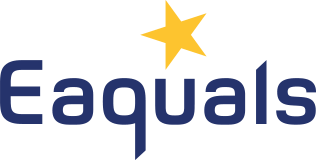Get to know: Walter Denz, Eaquals Vice-Chair
‘Be curious and never stop learning.’

Could you tell us something about your early career in the language teaching sector ?
Together with a partner, I set up Liden & Denz in post-communist Russia back in 1992. A year earlier I graduated from the London School of Economics with an M.Sc. in Political Theory. So neither did I attend any business school nor did I train as a teacher. I also did not speak Russian back then. My only connection to language teaching was my own student experience learning English at Eurocentres a few years earlier.
What big changes have you noticed in the language teaching field since you started?
Students are more independent these days. When we started, the language school was the only source of information and 100% of our students stayed with host-families. That was pre-internet. In the case with Russian, it is interesting to note that the average age has dropped significantly. More and more students study Russian for career purposes. This was not the case in the 90’s.
When did you get involved with Eaquals?
We got interested in Eaquals early on but did not feel ready to be inspected for quite some time. There were only a few schools teaching Russian, the course books we had to use were all published in Soviet times and teachers were used to teach in Soviet, military style. Eaquals was the ultimate challenge for us and in 2007, after a very useful advisory visit the year before, we finally go accredited. It felt like winning a gold medal in the Olympics!
Could you tell me about your current position/role in Eaquals?
I am currently Vice-chair, overseeing strategic marketing of the association, working closely with my colleagues at the board and with the executive director’s team.
What new development in the field of language teaching interests/excites you the most?
Technology in the classroom, the use of technology to monitor student progress and to provide additional self-study. We spend a lot of time testing what really helps teachers and students, and what does not. Myself I am back in class (in Russian literature); so I take a personal interest in language learning apps and other electronic tools. As we have recently become also a publisher, I am getting more and more involved in the global market for Russian course books, print-on-demand and online distribution.
What advice would you give to a new teacher/trainer starting out in the language teaching sector?
Be curious and never stop learning. Choose an employer who believes in excellence in language education and lives up to these believes.



